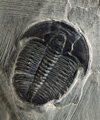
Here is a story today about a “second” rise in oceanic oxygenation, a rise that allowed, the authors tell us, the ‘evolution’ of higher life forms. Here’s a portion of the link:
These widespread sulphidic conditions close to the continents, coupled with deeper waters that remained oxygen-free and iron-rich, would have placed major restrictions on both the timing and pace of biological evolution.
Dr Poulton, who led the research, explained: “It has traditionally been assumed that the first rise in atmospheric oxygen eventually led to oxygenation of the deep ocean around 1.8 billion years ago.
“This assumption has been called into question over recent years, and here we show that the ocean remained oxygen-free but became rich in toxic hydrogen-sulphide over an area that extended more than 100 km from the continents. It took a second major rise in atmospheric oxygen around 580 million years ago to oxygenate the deep ocean.
“This has major implications as it would have potentially restricted the evolution of higher life forms that require oxygen, explaining why animals appear so suddenly, relatively late in the geological record.”
Two points come to mind:
First, the authors are so much as saying that natural selection had a billion years to do something with life forms that can use hydrogen sulfide, and it couldn’t. Why not? I thought organisms that replicate can solve any old kind of problem thrown at them.
Second, and as a corollary to the first, ONLY when the oceans became oxygenated did life emerge. When did that happen? 580 million years ago. That’s right…..the Cambrian Explosion. This completely demolishes Darwin’s notion of gradualism, a tenet of his ‘theory’ that he steadfastly refused to give up.
Thus, Darwin was wrong. He was outrageously wrong. Why? Because, per Darwin, the ONLY explanation for the intracacies of the Cambrian fossils (e.g., the trilobite eye) presuming gradualism was at work, would have been a very long period of time PRIOR to the Cambrian in which more primitive forms ‘gradually’, via NS agency, developed their complexity. To maintain this position, Darwin had to ARGUE AGAINST the fossil record, which showed, even in his days, that there were no significant fossil layers prior to the Cambrian (yes, we know all about Epicarean, but they, too, are primitive, and they, too, are but 30 million years prior to the Cambrian). The data the authors present as much as stipulates that there were no prior “primitive life forms”, and that there was a ‘triggering event’ in the Cambrian time frame.
So, Darwin is wrong about gradualism. Darwin is wrong about the fossil record. But, of course, his theory is nevertheless correct. Huh…??!?
Read More ›
